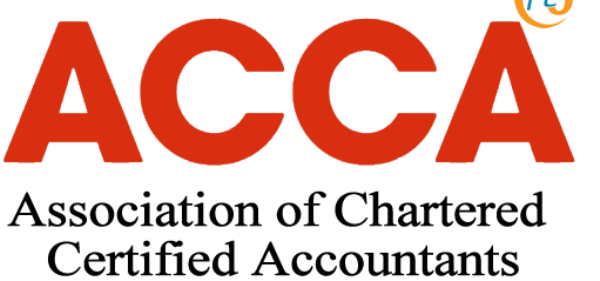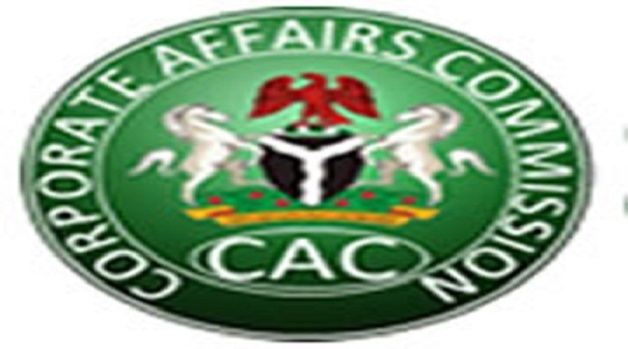News
ACCA Report Identifies Impact of IT, Regulation on Businesses

The Association of Chartered Certified Accountants (ACCA) has launched a campaign – supported by one of the largest ever global studies across the profession – on the skills accountants need as they head into the next decade.
ACCA’s body of research shows there are diverse emerging issues where technical and communication skills will be vital by 2020–25. What topped the list of competencies expected to be most important over the next decade is the ability to communicate a more holistic view of corporate reporting.
Thomas Isibor, head of ACCA Nigeria, said: ‘New hardware, software, economic threats, services and regulations are all arriving at a breakneck speed and all of these changes will have a significant impact on commerce.
Mr Isibor Added: ‘For FDs and CFOs, the trick is identifying what changes will have the most impact on business and how can best to prepare to meet—and take advantage of—these challenges now.’
According to the ACCA Business Forms report, business activities are an essential part of every society. Their success, especially when first starting up, depends on many social and economic variables, but one of the most important things is what legal form the business adopts. Sympathetic and pragmatic advice from experienced experts in the field can make a real difference to the success of the venture.
Previous ACCA research has shown that the value ascribed to an accountant’s advice to a small business comes not simply from the professional qualification but also from the
client’s perception of the adviser as a peer, who has faced the same challenges and decisions in establishing their own business (Spence et al. 2012).
ACCA’s report also noted that : ‘A detailed familiarity with local tax and capital movement laws and business practices will also be needed to work across (and with others in) multiple geographies’.
Speaking on how to attract and retain these skills, Mr Isibor said: ‘Identifying these critical skills is one thing. Creating a workspace that attracts, rewards and amplifies them is something else entirely. It’s here where we must confront the much vaunted, and often maligned, generation known as millennials. But there is good news for the profession.
‘Of the 19,000 16 to 36 year olds asked, 85% responded positively to the idea of a career in finance.’
The ACCA report clearly highlights that business success involves meeting, adapting and sometimes creating change. The pace of change has increased substantially over the past few years.
News
CAC Unveils Measures to Ease Company Registration

Mr. Hussaini Ishaq-Magaji, SAN, registrar-general of the Corporate Affairs Commission (CAC), said the commission is determined to end delays in business registration and service delivery through new digital reforms.

Ishaq-Magaji stated this on Monday at the CAC Stakeholders’ Forum held in Kano, which brought together lawyers, business owners, EFCC, ICPC, and other partners to review challenges and reforms in the commission’s service.
He said the commission had inherited an overstretched registration portal that was unable to cope with the growing demands triggered by compliance initiatives such as mandatory registration of Point-of-Sale (PoS) businesses and annual returns filing.
According to him, the situation created a backlog of applications and placed an unfair burden on customers and staff. “Our call centre and operational departments receive no fewer than 3,000 emails daily, with less than 100 staff attending to them.
“This model is not sustainable and not fair to our customers or our staff. That is why we resolved to change it for good,” he said.
The registrar general explained that the commission had introduced an Artificial Intelligence-powered portal capable of reading and routing thousands of customer requests within seconds.
He added that the AI system, launched in June, had successfully reduced the time for business name registration to less than 10 minutes, a feat he described as unprecedented globally.
“Anywhere you are, without knowing anyone in CAC or paying a middleman, you can register a business name and get your certificate instantly in less than 10 minutes. That is the new Nigeria we are building,” he said.
He, however, acknowledged that other services, such as limited liability company and incorporated trustee registrations, were still experiencing delays due to backlogs, with about 7,000 pending applications being handled by only 63 registry staff.
The registrar-general assured stakeholders that further phases of the digital reform would address these gaps, stressing that technology was now a necessity for the commission to deliver its mandate.
Also speaking, Ahmed Abubakar, Chairman, Nigerian Bar Association (NBA), Ungogo branch, commended the commission for its digital reforms, describing them as a “remarkable achievement.”
Similarly, Usman Umar-Fari, Chairman, NBA Kano branch, urged the CAC to encourage companies to fulfill their corporate social responsibilities and create more opportunities for lawyers.
News
Police Begins Enforcement of Tinted Glass Permits from October 2

Nigeria Police Force has announced that it will begin enforcing the use of tinted glass permits nationwide on October 2, 2025.

SP Shi’isu Adam, Public Relations officer, Jigawa State Command, disclosed this in a statement in Dutse, the state capital.
According to him, online registration and application for the permits is ongoing, and members of the public are urged to follow the stepwise process on possap.gov.ng for a smooth application.
He explained that applicants must create an account using their NIN, BVN, or TIN, verify their account via email, then log in to select the Tinted Glass Permit service and upload their vehicle details along with supporting documents.
“Applicants must carefully confirm all details before submitting their requests and making payments as directed on the portal,” SP Adam emphasised, urging accuracy for fast processing.
He added that after the application, vehicle inspection, and fingerprint biometric capturing will be scheduled at the designated Nigeria Police Force Intelligence Departments.
For Jigawa applicants, Adam confirmed that biometric capturing would be done free of charge at the State Intelligence Department, located at the Police Headquarters in Dutse.
He also warned motorists against patronising unauthorised individuals attempting to exploit the permit process.
“This initiative promotes transparency and ensures road safety for all,” the PPRO said, stressing the command’s commitment to accountability.
The statement further called for cooperation from the public to ensure the smooth enforcement of laws and a safer driving environment statewide.
It added that compliance with the directive safeguards motorists legally and helps combat illegal window tinting.
“Those planning to apply are advised to begin registration promptly ahead of the enforcement date,” SP Adam stated.
News
Takang, Ladid Lead Africa’s Digital Sovereignty Debate @ DACE 2025

How can Africa remain safe and powerful in a world being rapidly redefined by Artificial Intelligence? That pressing question will take centre stage at the 13th Digital Africa Conference & Exhibition (DACE), scheduled for October 28–29, 2025, in Abuja.

The two-day gathering will be anchored by two powerhouse keynote speakers: Dr. Armstrong Takang on Day 1 and Prof. Latif Ladid on Day 2, each bringing unique expertise to Africa’s digital sovereignty conversation.
Dr. Armstrong Takang, Managing Director/Chief Executive Officer of the Ministry of Finance Incorporated (MOFI), will open the conference with a keynote that situates Africa’s digital sovereignty within the broader context of economic reform, institutional innovation, and strategic governance.
A consummate professional and visionary thinker, Dr. Takang has spent decades bridging the gap between public reform and private investment across Africa and the United States. Before his current role at MOFI, he served as Special Adviser to the Honourable Minister of Finance, Budget and National Planning, where he led the MOFI Transformation Team.
His career includes leading Growth Alliance Partners (GAP), a pan-African firm that helped turn around several businesses to create shareholder value, and working at KPMG in New York.
He has been instrumental in designing and implementing key national initiatives such as the Integrated Payroll and Personnel Information System (IPPIS), the Voluntary Asset and Income Declaration Scheme (VAIDS), and the ICT components of EFCC/NFIU systems.
Dr. Takang has also chaired national ICT committees and contributed to landmark policies, including Nigeria’s Content Development in ICT and the country’s 50-year Development Plan. His keynote will highlight how digital and financial sovereignty intersect to secure Africa’s long-term competitiveness.
On the other hand, Prof. Latif Ladid, Founder & President of the IPv6 Forum and Chair of the AI & Blockchain Global Forum, brings decades of global leadership in internet architecture, digital policy, and emerging technologies.
His expertise spans across pivotal roles from IEEE Future Networks to the Internet Society, 3GPP, and EU research on next-generation networks.
Organizers say his keynote will set the tone for the conference, unpacking how Africa can assert digital sovereignty, safeguard its data, and lead in shaping the ethics and standards of AI on the global stage.
“This year’s theme, ‘Sovereign Intelligence: Africa’s Voice in the Global Digital Order,’ isn’t just a concept, it’s a necessity,” said Dr. Evans Woherem, Chairman of Digital Africa Consult. “Prof. Ladid’s keynote will highlight what it takes for Africa to remain safe, independent, and powerful in the new AI era.”
At a time when global powers are racing to define AI norms and secure digital dominance, Africa risks being left behind if it fails to act. Much of its technology remains imported, its data stored abroad, and its languages invisible in mainstream AI systems.
DACE 2025 is designed to change this narrative, by equipping Africa with the tools, strategies, and partnerships to become a proactive co-author of the digital future.
The conference will feature high-level dialogues on digital sovereignty, policy innovation, and cross-border cooperation, alongside exhibitions of homegrown startups, developer workshops, and showcases of African-built AI tools for health, agriculture, finance, and education.
Beyond the panels and showcases, DACE 2025 is expected to produce a concrete roadmap for Africa’s digital sovereignty.
“This isn’t just about technology,” noted Woherem. “It’s about agency, safety, and independence. With Prof. Ladid setting the stage, we hope to leave Abuja with a united vision of Africa’s place in the global AI order.”
With delegates expected from across Africa and the world, the two-day gathering promises to be a defining moment in the continent’s digital journey.

 General News3 days ago
General News3 days agoLBS Described Digital Transformation in Banking, Others as Fueling Nigeria’s Economic Evolution

 E-Business3 days ago
E-Business3 days agoExperts Seek Engagement on AI Adoption for Governance Standards

 News3 days ago
News3 days agoFire Incident: Afriland Properties Attributes Afriland Towers Blaze to Inverter Room Malfunction

 E-Business3 days ago
E-Business3 days agoNITDA Empowers 3,600 Teachers Nationwide to Lead Nigeria’s Digital Literacy Transformation

 News3 days ago
News3 days agoMTN Nigeria Backs Cloud Accelerator Program with N100m

 News3 days ago
News3 days agoPenCom Redesigns Pension Plan, Targets Informal Sector

 Telecom2 days ago
Telecom2 days agoAirtel Africa Extends $100M Share Buyback Plan

 News2 days ago
News2 days agoCAC Unveils Measures to Ease Company Registration














